【新唐人2011年10月28日訊】美國國會成立的美中經濟安全審議委員會(The U.S.-China Economic and Security Review Commission),最近發表一份報告指出,中共確保國企主宰中國經濟,而這種策略導致中國同主要的貿易夥伴產生更多摩擦。中國國有企業在海外的擴張,以及中國在國內扶持國企的政策,不僅引起美國政界和工商界的關注,同時國內也有不少聲音批評這是「國進民退」,政府與民爭利。
美中經濟安全審議委員會,10月26號,發表了題為《中國國有企業與國家資本主義分析》的報告。報告全面分析了中共對中國公司企業的控制和影響。報告認為,由中共擁有和控制的GDP份額大約為50%。而得到政府優惠的中國國企享有不公平的競爭優勢。
獨立中國問題學家鞏勝利表示,美國的這個報告一針見血,真實反應了目前中國企業兩級分化的現狀。
鞏勝利:「特別是最近十年吧,大家看的都非常清楚了,比如像中國移動國有企業、像中國工商銀行、中國銀行,還有包括其它的一些中國銀行。從無到有,從小到大,現在都是行業全球的排頭兵 ,這些都證明了中國國有企業的壟斷地位在逐步的擴大,或者向世界各地的輻射。」
美國這次報告還指出,一方面中國的國企得到政府優惠,擁有強大的競爭優勢。另一方面,對於其他一些新興的、或戰略性的、和受到中共政府關注的行業,中國市場對美國公司就不那麼友好。
美國的監管資料顯示,中國國有公司在取得國有銀行貸款方面,享受低於市場利率的優惠,以及優惠的稅收待遇。
報告中說,中國10年前加入世貿組織時曾承諾不會直接或間接影響國企的商業決定,然而中國似乎並沒有遵守這一承諾,反而變本加厲擴大國企在實現國家重要經濟目標中所扮演的角色。中共的做法正引起中國同美國以及其他國家的貿易爭端,招致美國官員越來越多的關注和批評。
美國華裔律師、《中國即將崩潰》作者章家敦表示,北京在把越來越多的錢投入國有企業和國家資助的基礎建設,這意味著私有企業得到的更少。
章家敦:「我認為這真的阻礙了中國的社會發展。因為國有企業變得更加強大、 他們互相勾結、 限制了私有企業獲得中國市場、 不僅僅是對於在中國的外國企業、 它也傷害了國內的私有企業、 而他們在過去三十年真的是中國經濟的驅動力。」
溫州小企業商會最近的一份民調顯示,溫州36萬中小企業當中,1萬8千家企業已經由於資金鏈中斷停止經營。溫州市政府的一份報告也顯示,最近幾個月來,溫州至少有90家公司的老闆因不堪負債和企業瀕臨破產而失蹤和跑路,有的甚至跑到海外。
鞏勝利:「所以國有企業的壟斷,它的壟斷而且是排他的,特別是在生態環境源頭,比如像資源方面,石油資源、政治資源、還有像經濟資源,比如像銀行的貨幣資源方面,這些一切都造成了這種行業的壟斷啊,是其它的中小企業以及個人啊,都艱難的生存。」
另外一個問題是,一些中國企業實際是由軍隊掌控。
章家敦:「比如華為,他們試圖在美國建立關係網絡。我們最不願意看到的就是中國軍事企業在美國經營手機。我們必須阻止。 」
章家敦還表示,美國需要更好的瞭解中國“發生了什麼”。他說,這是中共一黨獨裁的本質決定的。他認為,華盛頓的美中經濟安全審議委員會關注所有這些事務非常重要。
而在中國國內也有不少聲音批評,認為中共的這種做法已經導致「國進民退」,是改革倒退及與民爭利。
新唐人記者秦雪、唐睿、王明宇採訪報導。
***************
China’s State Owned Enterprises
The U.S.-China Economic and Security Review Commission,
which was established by the U.S. Congress, recently published a report stating that
the Chinese Communist Party (CCP) is doing everything in
its power to ensure that state-owned enterprises dominate the Chinese economy.
This strategy has caused increased friction
between China’s major trading partners.
China’s state-owned overseas enterprises’ expansion
has attracted the concern of the political and
business community in the U.S.,
as well as China's dominating state-owned enterprises’ policies.
In addition, it has stirred up the ire of a number of people in China,
with some saying that these CCP policies are
“national forward but people backward.”
That is, the Party always gains at the people’s expense.
On October 26, the U.S.-China Economic and
Security Review Commission delivered a report titled
China's State-Owned Enterprises And State Capitalism Analysis,
which comprehensively analyzed the CCP’s control and influence with regards to Chinese companies.
The report indicated that the CCP owned and controlled
about 50 percent of the gross domestic product.
China’s state-owned enterprises receive preferential treatment
from the regime and enjoy an unfair competitive advantage.
Independent expert on China, Gong Shengli, said:
“The U.S. report goes right to the heart of the matter, reflecting the true polarization of Chinese enterprises, today.”
Gong Shengli: "Especially in the last decade, we can clearly see
that state-owned enterprises such as China Mobile,
China Industrial and Commercial Bank, China Bank,
as well as other Chinese banks, went from being small banks to being the vanguard of the global industry.
This is evidence of China's state-owned business monopolies
gradually expanding around the world."
The report also pointed out that China's state-owned enterprises
receive benefits from the CCP, thus they have a strong competitive advantage.
On the other hand, for other emerging or strategic industries
which concern the Chinese regime, the Chinese market are not so tolerant to those American companies.
U.S. regulatory information shows that
Chinese state-owned enterprises enjoy below market interest rates and preferential tax treatment.
The report said during China's accession to the
World Trade Organization 10 years ago,
it promised not to directly or indirectly affect
the business decisions of state-owned enterprises.
China has not complied with this commitment,
but instead intensified its expansion of state-owned enterprises in order to achieve its national economic goals.
The CCP’s approach is causing trade disputes with
the United States and other countries,
leading U.S. officials to scrutinize
the CCP’s trade practices more and more.
Gordon Chang, a Chinese-American lawyer and the author of
The Coming Collapse of China, said that Beijing authorities
put more and more money into state-owned enterprises
and state-funded infrastructures, which means that private companies get less.
Zhang Jiadun: “I think it really hindered the development of
Chinese society.
The state-owned enterprises become more powerful and are,
colluding with each other and limiting private enterprises
in China, not only for foreign companies in China,
but it also hurts the domestic private enterprises, too,
which are the true driving force
of China's economy in the last three decades."
The Wenzhou Chamber of Commerce of Small Businesses’
recent polls showed that of the 360,000 small and medium enterprises in Wenzhou,
18,000 of them have shut down
due to financial chain disruptions.
The Wenzhou municipal government’s report also showed that
in recent months, at least 90 companies and business owners in Wenzhou,
disappeared or escaped due to mounting debt
and near bankruptcy, with some even escaping abroad.
Gong Shengli: "So the monopoly of state-owned enterprises,
it is an exclusive monopoly, particularly those involving
natural resources such as oil, political resources,
and economic resources, including bank's monetary resources,
which all started as regular businesses but turned into monopolies,
this has made it hard for small and medium enterprises, as well as individuals to survive."
Another problem is that some Chinese companies are actually
controlled by the military.
Zhang Jiadun: "Such as Huawei, they try to build
network relationships in the U.S.
What we least want to see is the Chinese military companies
selling mobile phones in the U.S. We have to stop them!"
Zhang Jiadun also said that the United States needs to better
understand China, and "what happens there."
He said all of this is caused by the CCP’s one-party system.
He believes that it is very important for the U.S.-China
Economic and Security Review Commission in Washington
to concern themselves about all of these matters.
In China there are many critical voices, saying that the CCP’s approach
has led to "the regime forward and people backward,"
which is regression of reform and fight for interests with people.
NTD reporters Qin Xue, Tang Rui and Wang Mingyu
看下一集
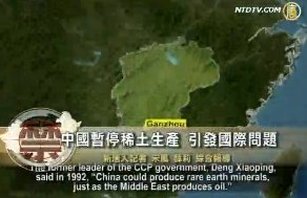
【禁聞】中國暫停稀土生產 引發國際問題

【禁聞】浙抗稅民眾指武警打死人 當局否認

【禁聞】陸軍警訓練 對付訪民 機密視頻洩漏

【禁聞】中國的法律體系 能保障人民自由﹖

【禁聞】美國民眾拋棄高福利共產主義

【禁聞】大陸降價退房潮湧 業主維權砸樓盤

【禁聞】中國一胎政策少生4億人?遭抨擊
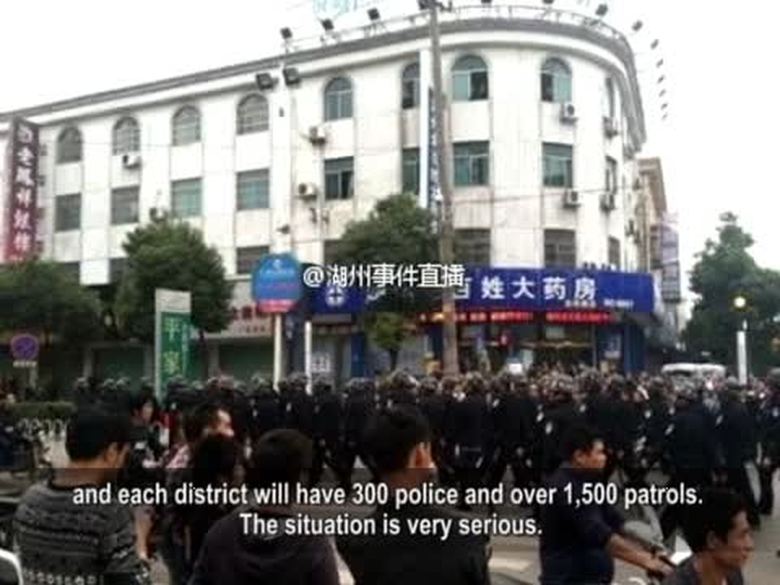
【禁聞】浙江抗稅變地區衝突 傳政府支持
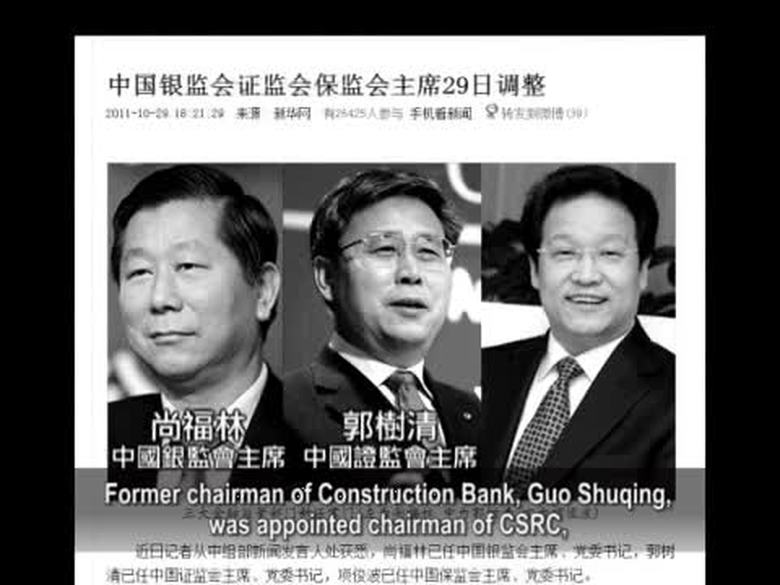
【禁聞】大陸金融界易帥 危機難解
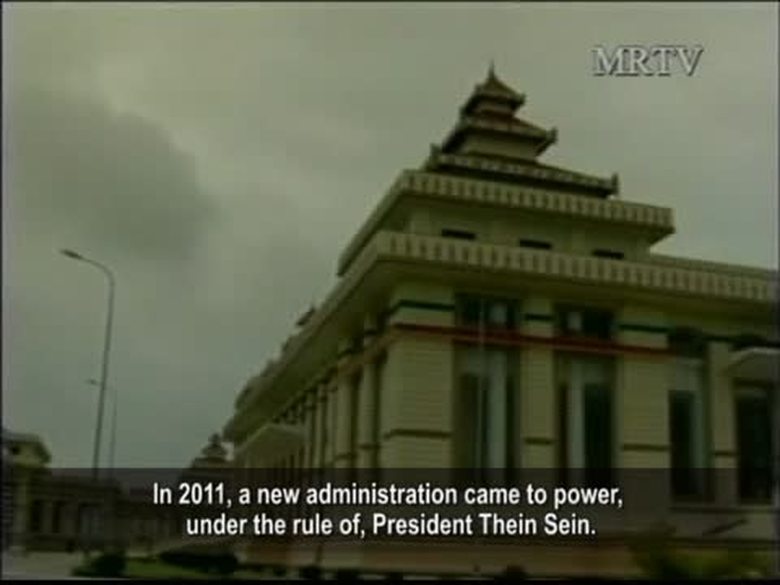
【禁聞】網管升級 網友諷新四大文明古國
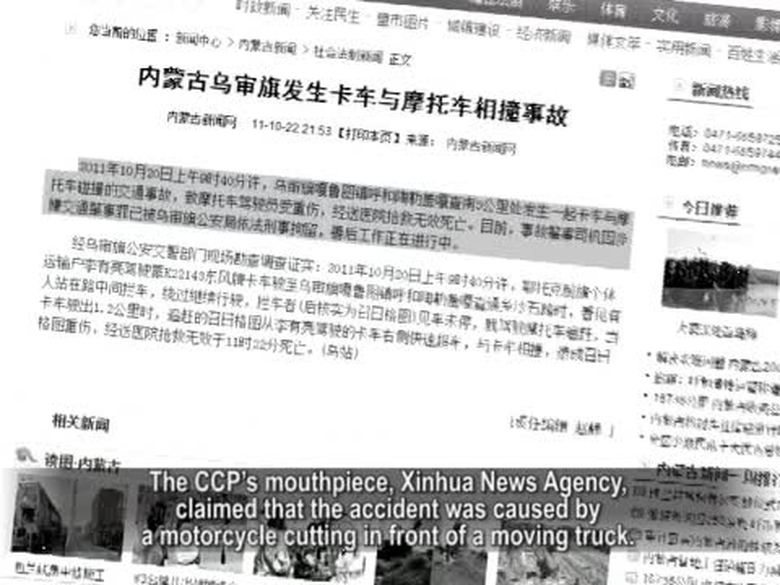
【禁聞】內蒙劍拔弩張 網友:官商勾結所致

【禁聞】江澤民短片炒作貼金 被指料理後事

【禁聞】政治迫害遇難者 從中共噩夢中醒來
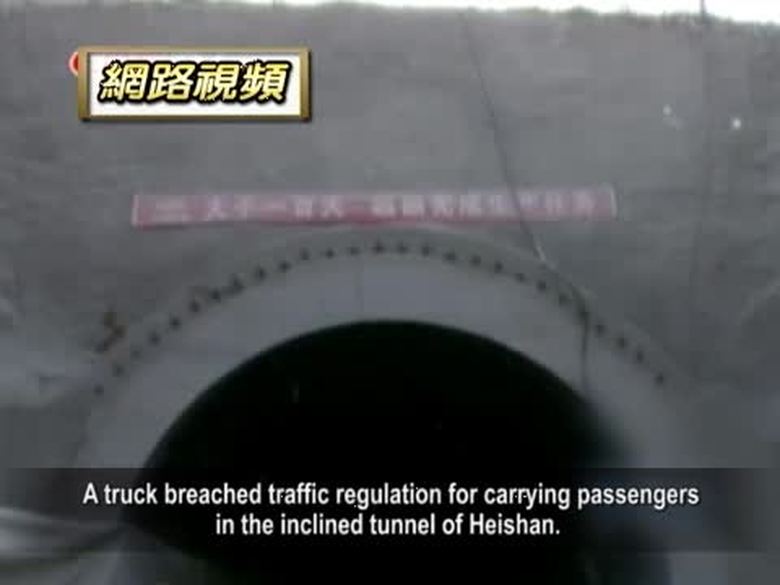
【禁聞】停工又車禍 蘭渝鐵路雪上加霜
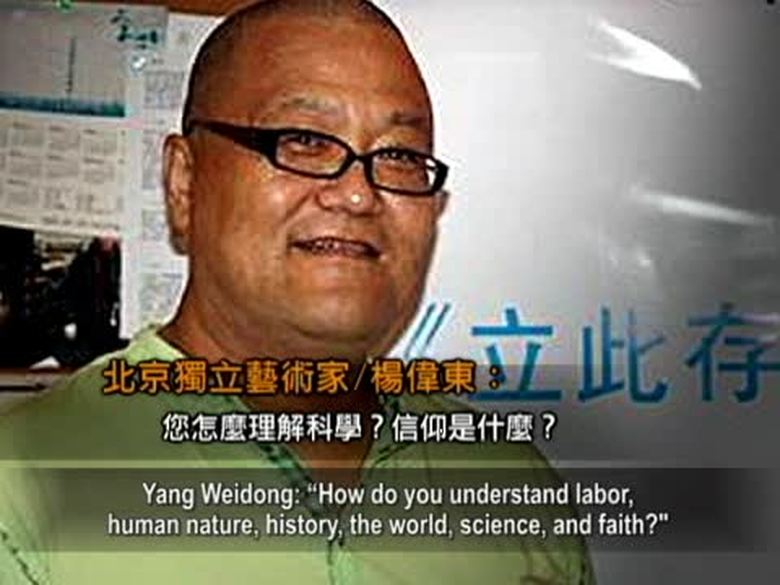
【禁聞】藝術家求訪「不敏感名人」胡錦濤
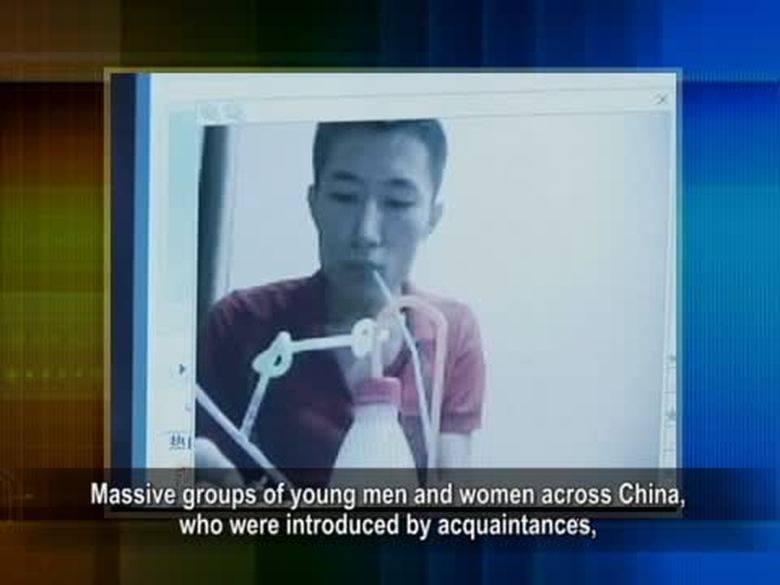
【禁聞】法律空運 五毒氾濫








